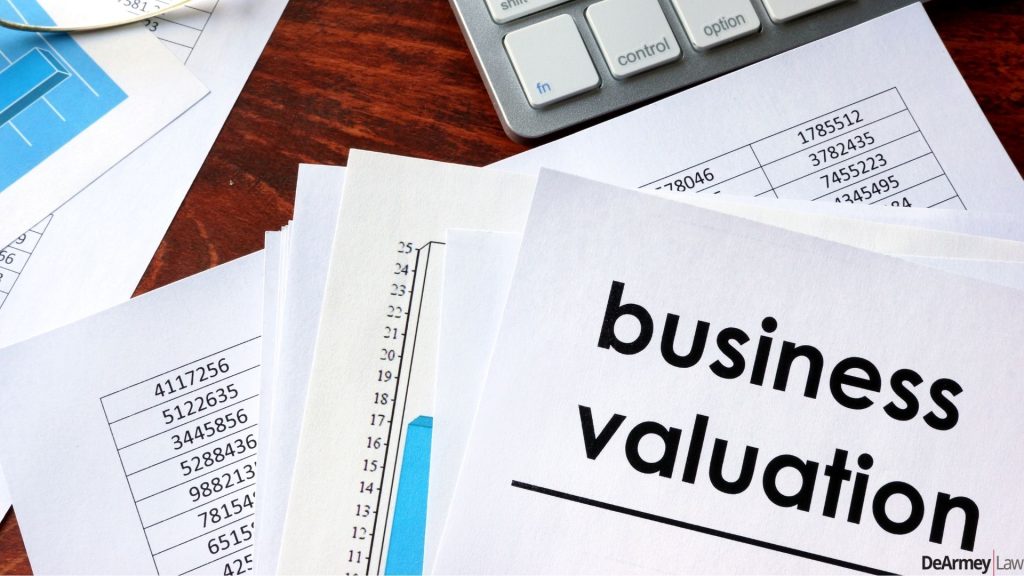Orange County Business Valuation Lawyer
With over 100 years of combined legal experience, our team is highly qualified to provide legal services for your most difficult family circumstances.
Orange County, California Business Valuation Attorney
Regardless of who you are or what your situation may be, undergoing a divorce or separation involves universal challenges. What options are applicable to you and what your best course of action will be are both factors that will vary depending on your personal circumstances. When a business interest is involved in your divorce, however, one consideration you don’t want to forget is the valuation of your business.
Business ownership is an especially complicated factor in the decision of property division during divorce, as a business can be an enormous asset.

It is not uncommon for this to play a critical role in high asset property and other complex divorce cases. If you are currently in this situation, it’s a given that you’ll want your business interests to be protected via the fairest possible property division outcome.
During your divorce, rather than going through this on your own, it is in your best interest to retain the services of someone who can help protect your business as well as your personal rights and assets. Consider working with one of the highly experienced family law attorneys at DeArmey Law in Orange County, California. No matter the size of your company, our business valuation lawyers are here to help.
The Importance of Expert Valuation of Your Business
Whenever you work with an attorney or individual who lacks this level of experience, you run the risk of receiving an inaccurate valuation—an oversight which can substantially impact the outcome of your property division process. If your business interests are not properly accounted for in your divorce, you can even end up with an unfair division of assets. Yet, once property division has been determined in court, this decision cannot be undone. You need to get it right on the first try.
An expert business valuation will account for everything, from machinery to real estate, as well as any other form of property, physical and intellectual. Business valuation is an in-depth process, and it involves a wide variety of factors and assets, accounting for forensic variables and more. In order for the valuation to be accurate, all of these attributes must be accounted for.
Community Property Versus Separate Property in CA

In the state of California, businesses can either be considered community property or separate property, depending upon when they were established. For instance, if the business was created prior to the start of the marriage (or after the date of separation), then it will be considered separate property during the division process. On the other hand, if the business was formed at some point during the marriage, then it will be considered community property and split equally between the divorcing parties.
Oftentimes, when a couple divorces, one individual will want to take ownership of the business, rather than have it split between the two parties. If one party is looking to take on operations of the business after the divorce, then they would be entitled to half of the business’s reasonable value to buy out a one-half share.
What Documents are Needed for a Business Valuation?
If you are looking to undergo a business valuation, then it’s wise to hire an experienced attorney or accounting expert. However, for them to perform the valuation, you’ll first need to provide a collection of business and financial statements. So, what paperwork are you going to need to gather?
The key documents necessary to perform a business valuation are:
- Financial statements (three to five years’ worth, including ones from the most recent period)
- Tax returns (typically from the past two years)
- A list of any intellectual capital (including customer, human, social, and structural capital)
- Forecasts and projections (could include, for instance, income statements or balance sheet forecasts)
- Business plans and other organization documents (could include bylaws and articles of organization or incorporation)
- The business owner’s discretionary earnings (includes personal expenses run through the business, such as a vehicle payment)
Also, depending upon the nature of your business, you may need additional documents. Some of these additional documents that could be required in your business valuation are:
- Images of the equipment or facility
- Any recent equipment appraisals (if any exist)
- If there are any known issues that would affect the value of your business, this must be made known (could include legal issues or a difficult financial situation)
- If applicable, provide a copy of your current lease agreement—or, alternatively, your most up-to-date real estate appraisal
- Prior relevant business transactions
What are the Steps in Valuing a Business During Divorce?
At its core, the business valuation process can be broken down into around ten steps, on average. These steps are as follows:
- Get in touch with an experienced business valuation or divorce attorney. This is crucial, if you are hoping to receive an accurate value.
- Before receiving a valuation, take the time to learn about and understand its purpose—this could affect the valuation approach that your attorney takes as well as the standard of value.
- Figure out the basics of value. What type of value is going to be measured, and what are the perspectives of all parties involved?
- Figure out the premise of value (could be either forced, or orderly, liquidation, or going concern).
- Gather the documents and data that you need to have the valuation performed.
- Look over the business’s historic performance, including ownership structure, history, and financial performance, over time.
- Figure out the business’s future outlook, to the best of your ability.
- Decide upon the approach(es) to valuation—selecting between an income, market, or cost approach.
- If relevant, make sure to apply any discounts.
- Conclude the final business value, based upon the previous information.
How Much Should a Divorce Business Valuation Cost?
The cost of a typical business valuation can vary due to several factors. For instance, of the ten steps we listed above, three can have a substantial impact on how much you should expect to pay for a business valuation. These steps are:
- The purpose of the valuation.
- Collection and analysis of data as well as the amount of time and effort that must be put into this process.
- The approach(es) necessary to complete the valuation.
Get in Touch With Orange County Business Valuation Lawyers
If you’re currently undergoing a divorce and are in need of a business valuation, then contact the divorce and valuation experts at DeArmey Law. We understand the ins and outs of both business and family law. To get started, simply contact us through our online form.


